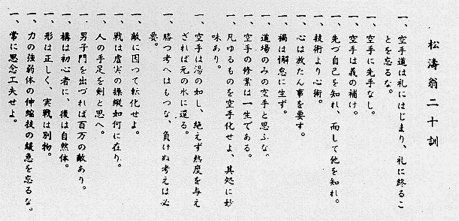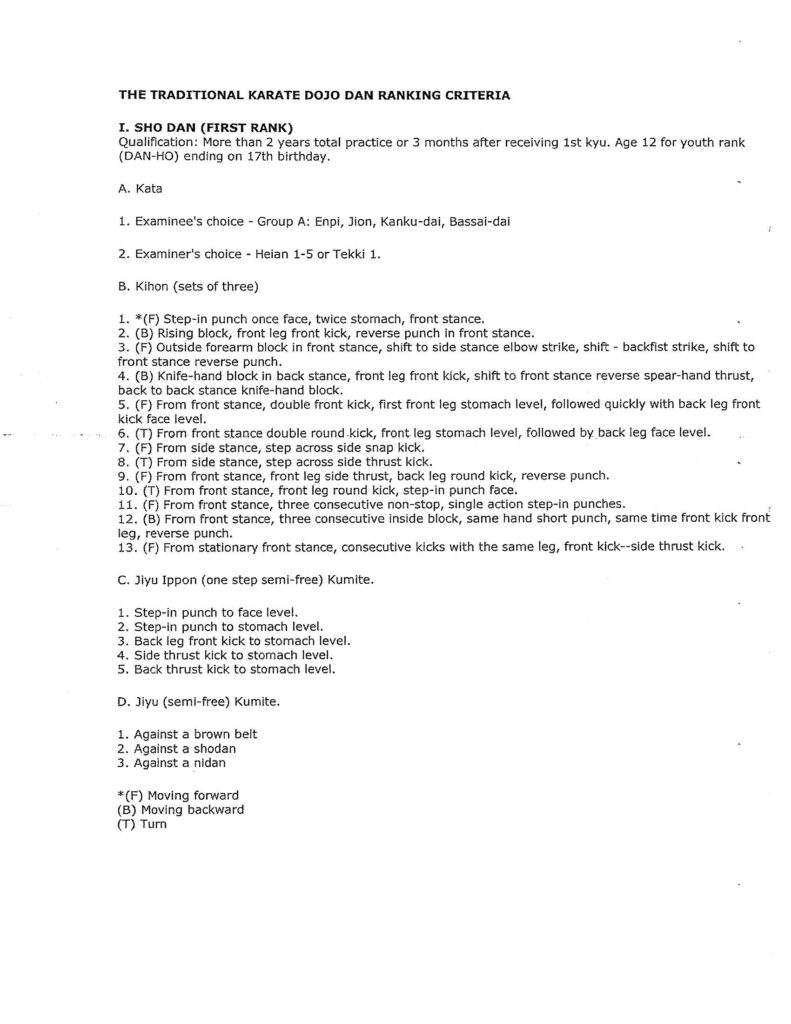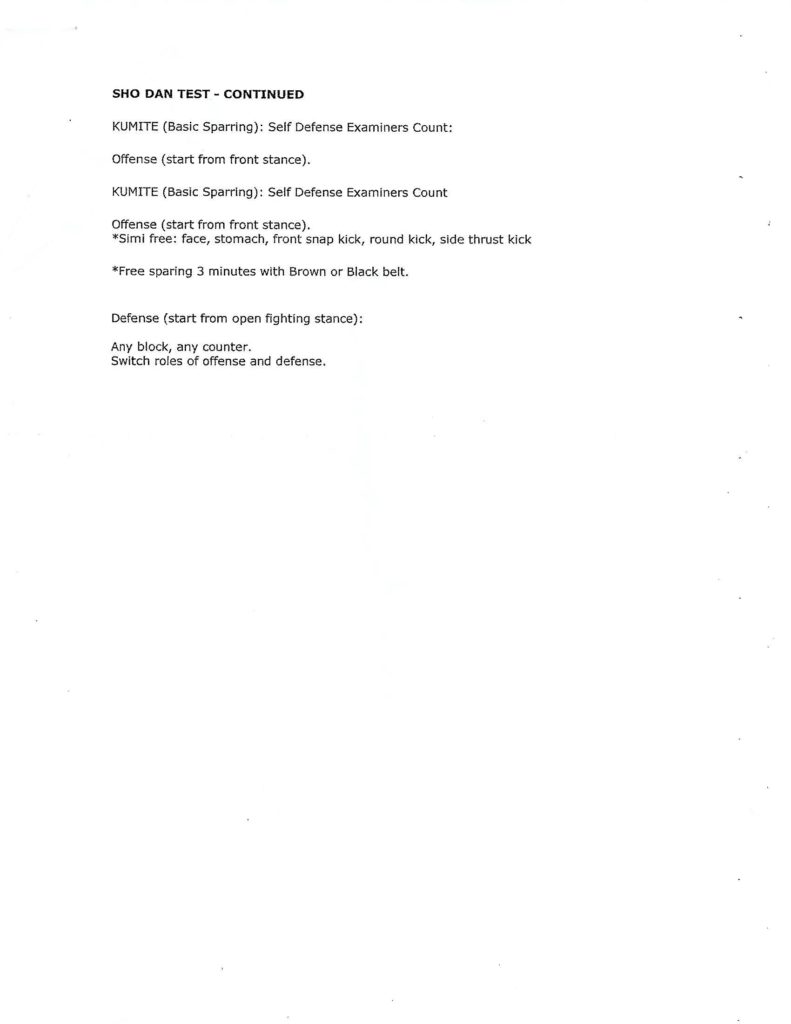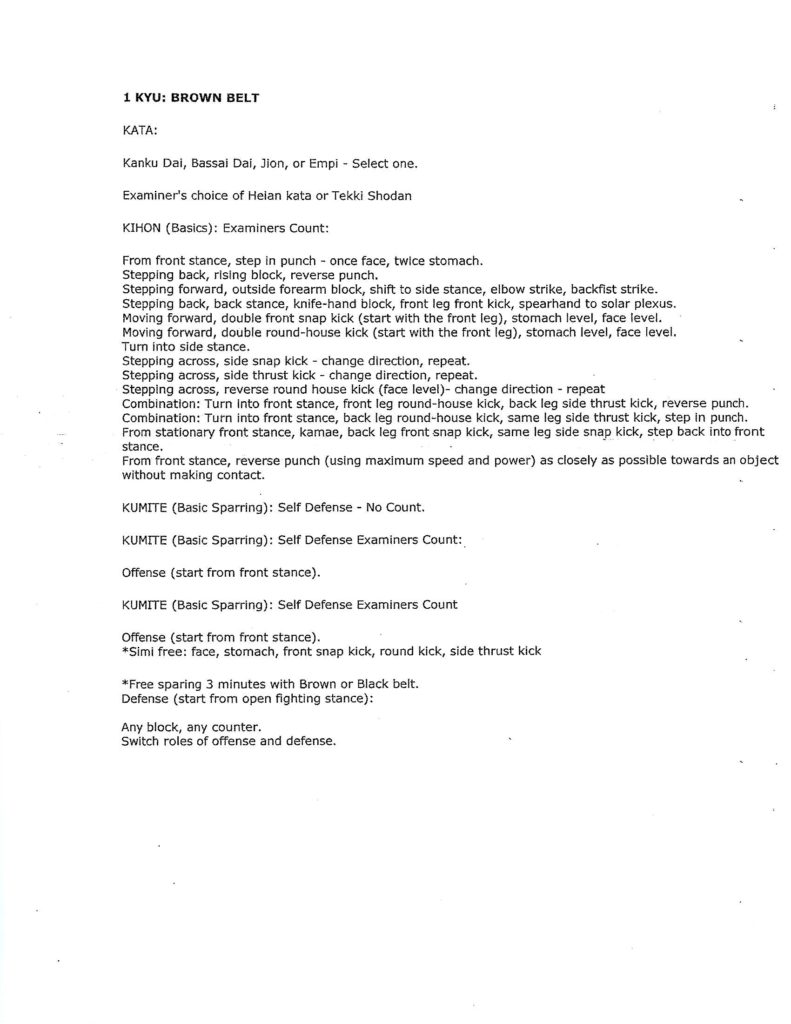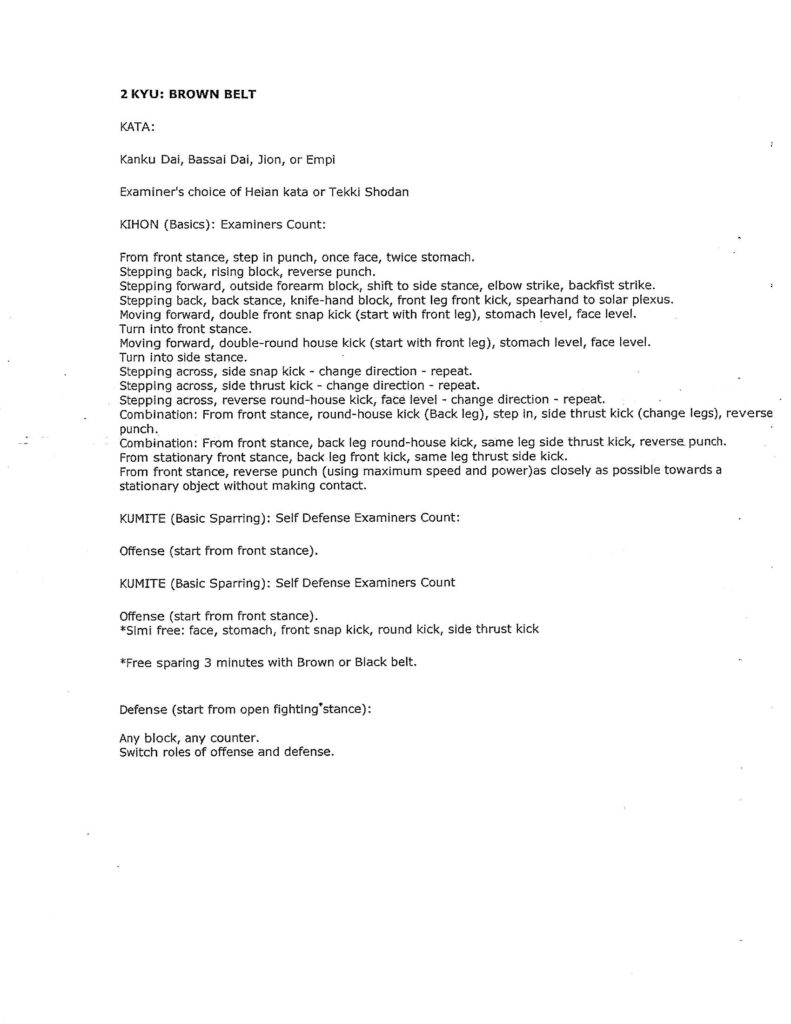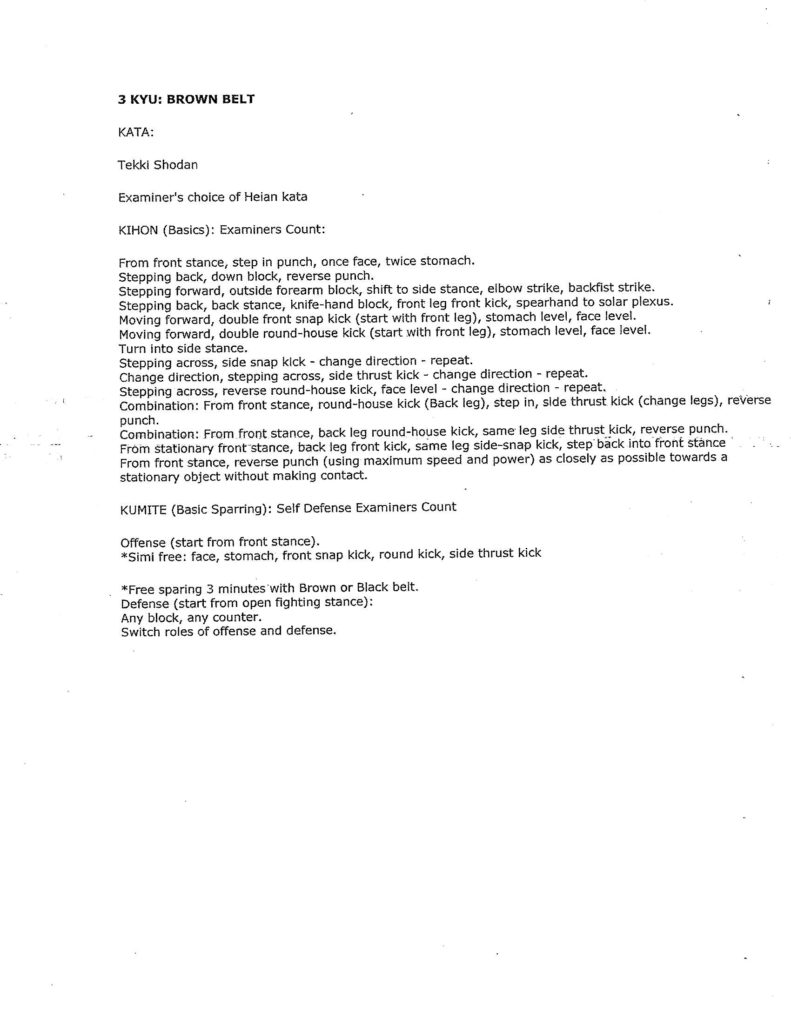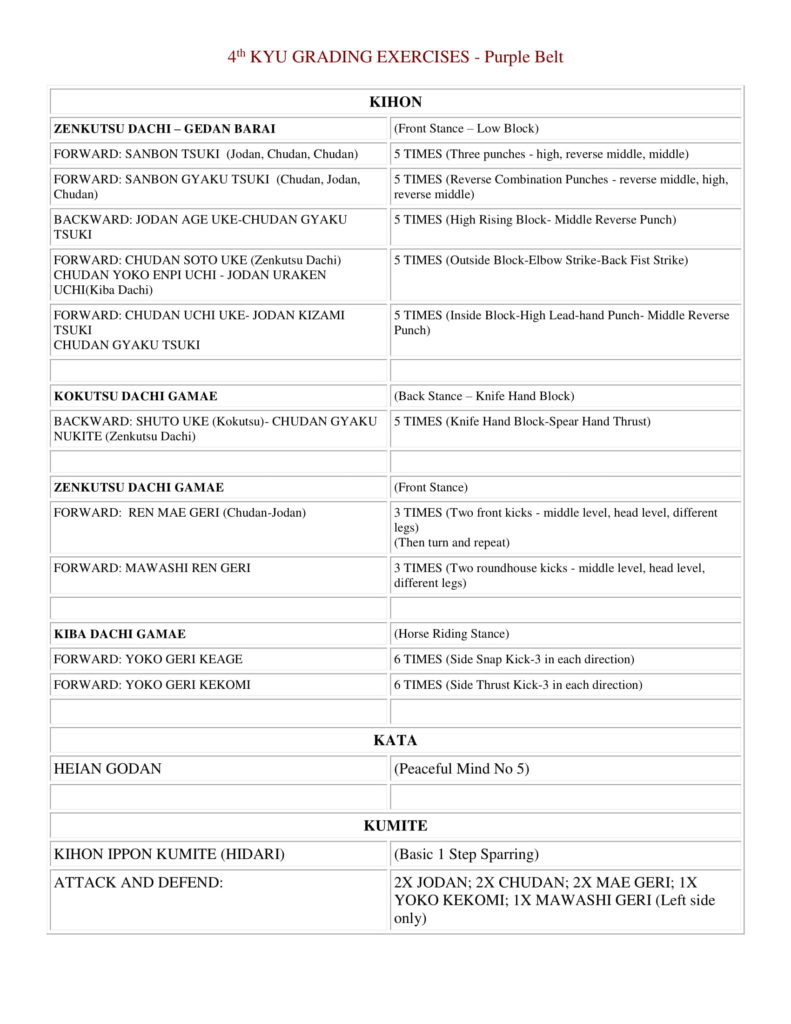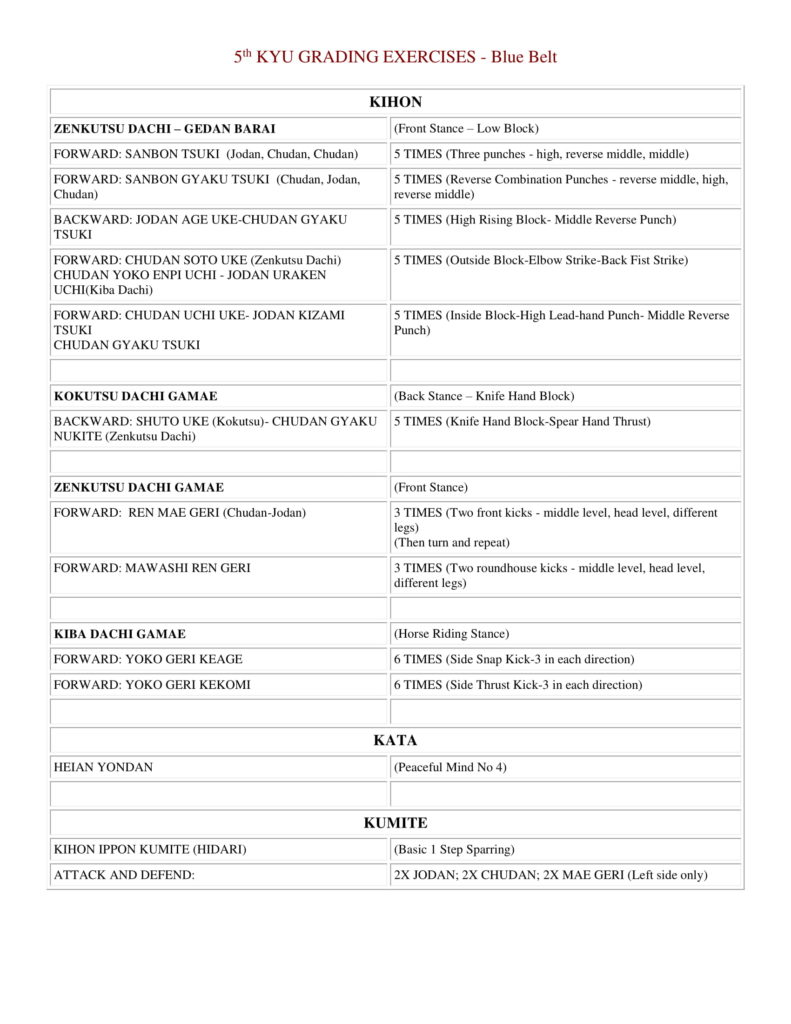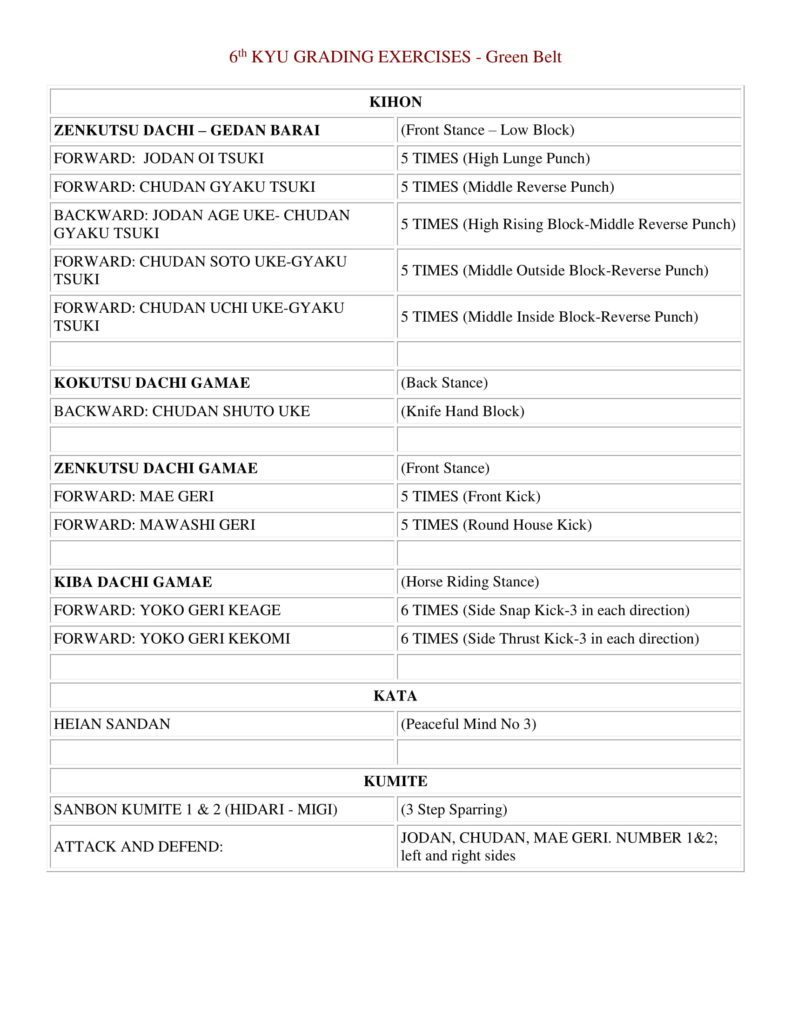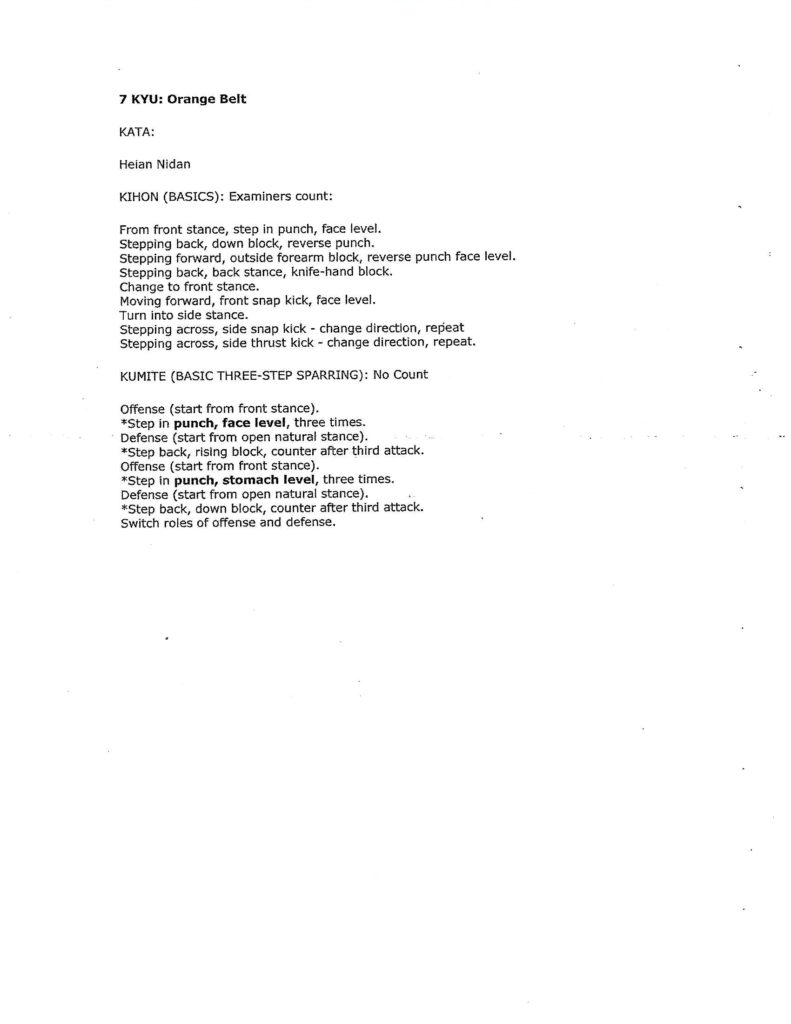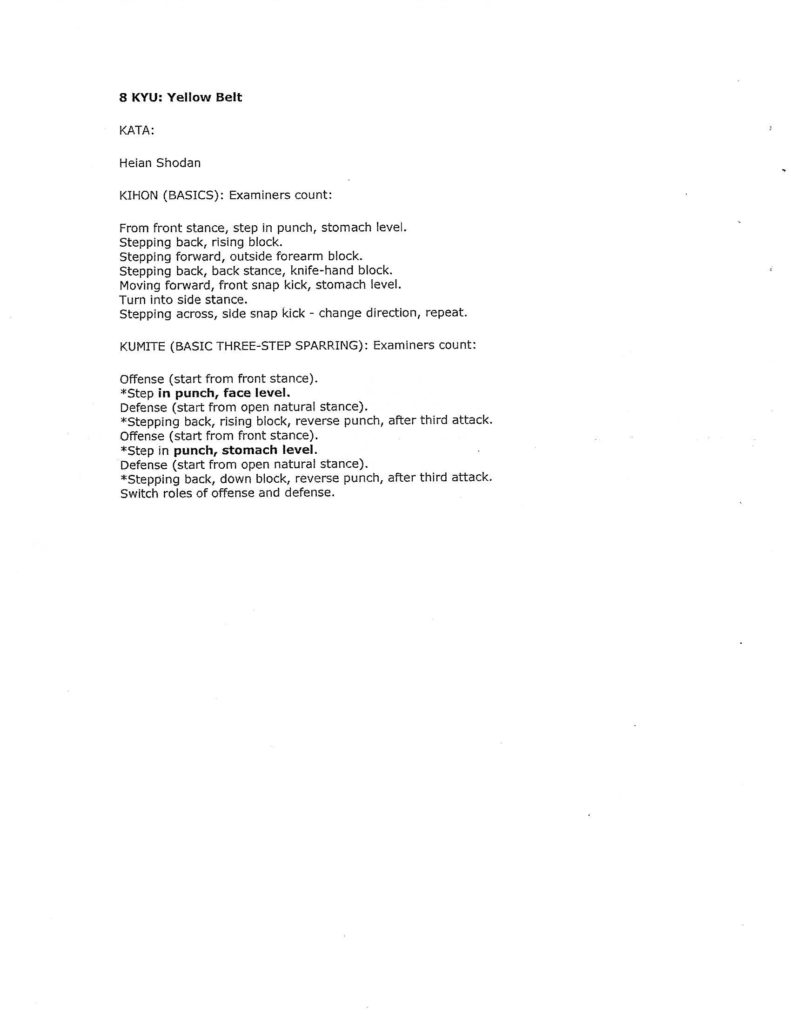The Values of Karate
The values of karate to modern man are numerous. In our everyday lives we often forget the value of exercise to both our physical and mental health. The practice of karate tones the body, develops coordination, quickens reflexes, and builds stamina.
Also, the serious practice of karate develops composure, a clearer thought process, deeper insight into one’s mental capabilities, and more self-confidence. In this, karate is not an end, but a means to an end. It is an activity in which advancing age is not a hindrance. Rather it encourages proficiency in the keen coordination of mind and body.
Dojo Kun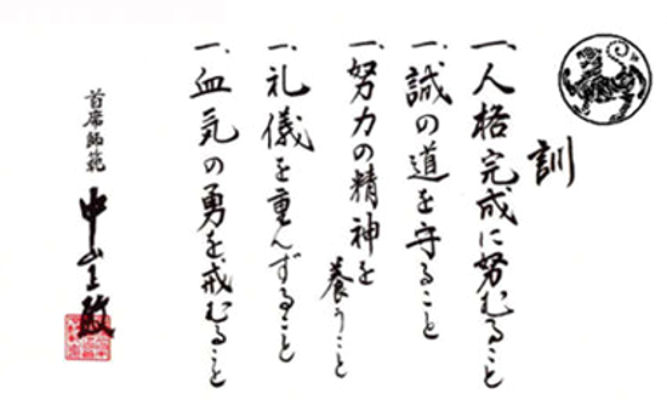
Dojo Kun #1: Seek Perfection of Character (Character)
This means that the art of karate is more than just physical. All beginners, especially the young, should be taught the importance of character building through discipline and rigorous training. For the beginner, the character building process begins with perfecting techniques through repetition. The sprit to fight will be achieved as one gains more confidence through development of stronger techniques. Train to bring out the spirit, not only to fight but to overcome personal problems especially in times of sickness, domestic crisis, or business problems. It is a long path to develop these spiritual values but once the concept is understood and experienced, it will provide a lifetime benefit of inner strength and peace.
Dojo Kun #2: Be Faithful (Loyalty)
To be faithful is a strong samurai tradition and an extension of the Confucius influence on the family and martial arts. The faith to be shown is in your sensei and dojo. The student must always be faithful to his sensei and follow in much the same way as a medieval samurai was bound to follow his feudal lord to the death without hesitation. While this may seem unusual in the present day, it is unreasonable to expect a sensei to teach all he knows to a student who is likely to leave for the slightest reason. The student must prove his loyalty over the years. The faith and loyalty extended to the sensei will be rewarded in that a greater amount of knowledge and wisdom will be passed on to the student and this bond between sensei and student is extremely valuable and is the basis of the learning relationship.
Dojo Kun #3: Endeavor (Effort)
To endeavor means complete dedication and commitment necessary to achieve mastery of the art. In no case is mastery possible without strenuous effort and sacrifice on the part of the practitioner. The endeavor must be of a sincere nature and not just superficial. Serious effort on the part of the student will be recognized by the sensei who will in turn spend more time with him or her.
Dojo Kun #4: Respect Others (Etiquette)
Respect for others is an important part of the Japanese and Okinawan culture therefore common to the martial arts. Gichin Funakoshi stressed that karate begins and ends with etiquette. He also stated that without courtesy there is no dojo. This is a reflection of the formal nature of the Japanese people and may be observed bowing during training as well as at home or office. Dojo etiquette is well defined. You bow correctly and show respect in everything you do and everywhere you go. Respect is extended to all…sensei’s, parents, educators, law, deceased, nature, etc.
Dojo Kun #5: Refrain From Violent Behavior (Control)
A trained fighter is a person with a fierce competitive spirit and great strength so it is unfair to use it against an untrained person. The karate-ka spirit is unbeatable and must use his knowledge only for the sake of justice. A person of character can walk away from a fight because he is in control of his emotions and is at peace with himself. He does not have to test his abilities on the street. He wins without fighting and he will have no regrets because now one will be injured. Refraining from violent behavior is hard to explain to many Westerners because of their environment, or the attitude of winning tournaments and they want to do it as quickly as possible which is against the principles of karate-do and dojo kun. It is therefore necessary for the instructors to constantly remind the students of the importance of the dojo kun.
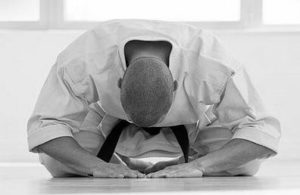 “The ultimate aim of karate lies not in victory nor defeat, but in the perfection of the character of its participants” —Gichin Funakoshi
“The ultimate aim of karate lies not in victory nor defeat, but in the perfection of the character of its participants” —Gichin Funakoshi
1. Karate begins with courtesy and ends with courtesy.
2. There is no first attack in karate.
3. First control yourself before attempting to control others.
4. Do not think that karate training is only in the dojo.
5. Put your everyday living into karate.
6. Do not think that you have to win, think rather that you do not have to lose.
7. Victory depends on your ability to distinguish vulnerable points from invulnerable ones.
8. Think of your hands and feet as swords.
9. When you leave home, think that you have numerous opponents waiting for you. It is your behavior that invites trouble from them.
10. Beginners must master low stance and posture, natural body positions are for the advanced.
11. Practicing a kata is one thing, engaging in a real fight is another.
12. Always think and devise ways to live the precepts every day.
13. One who practices Karate must follow the way of justice.
14. First you must know yourself. Then you can know others.
15. Spiritual development is paramount; technical skills are merely mean’s to the end.
16. Misfortune comes out of laziness.
17. Karate is a lifelong training.
18. Karate is like hot water. If you do not give heat constantly, it will again become cold.
19. Do not forget (1) strength and weakness of power, (2) expansion and contraction of the body, (3) slowness and speed of techniques.
20.
